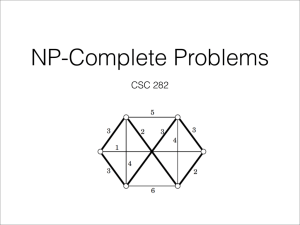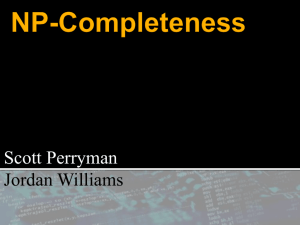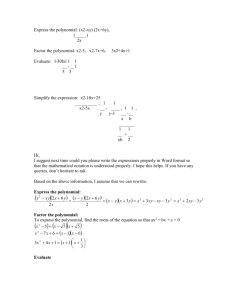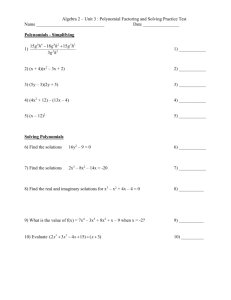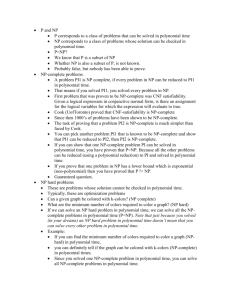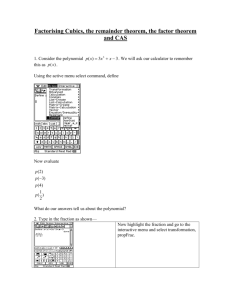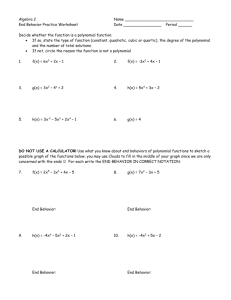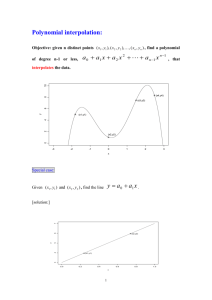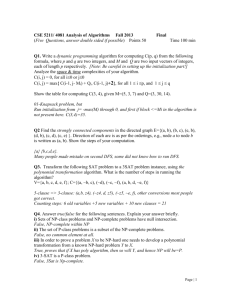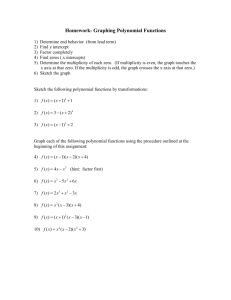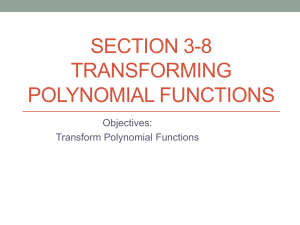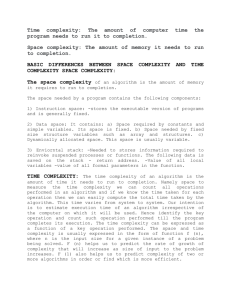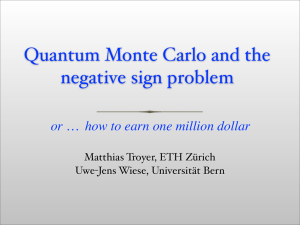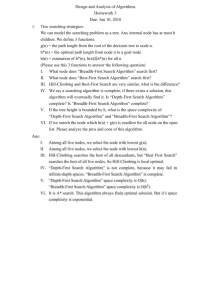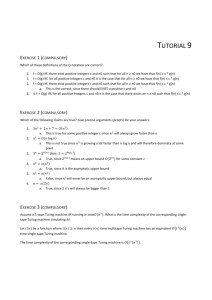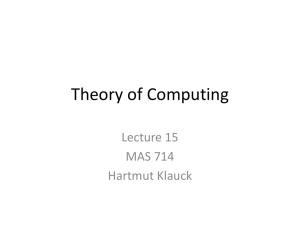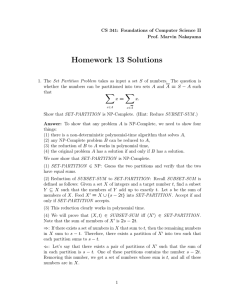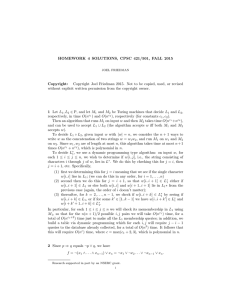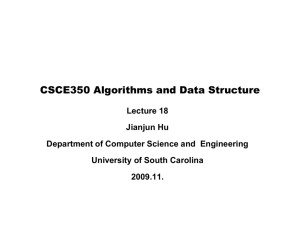DOC
advertisement
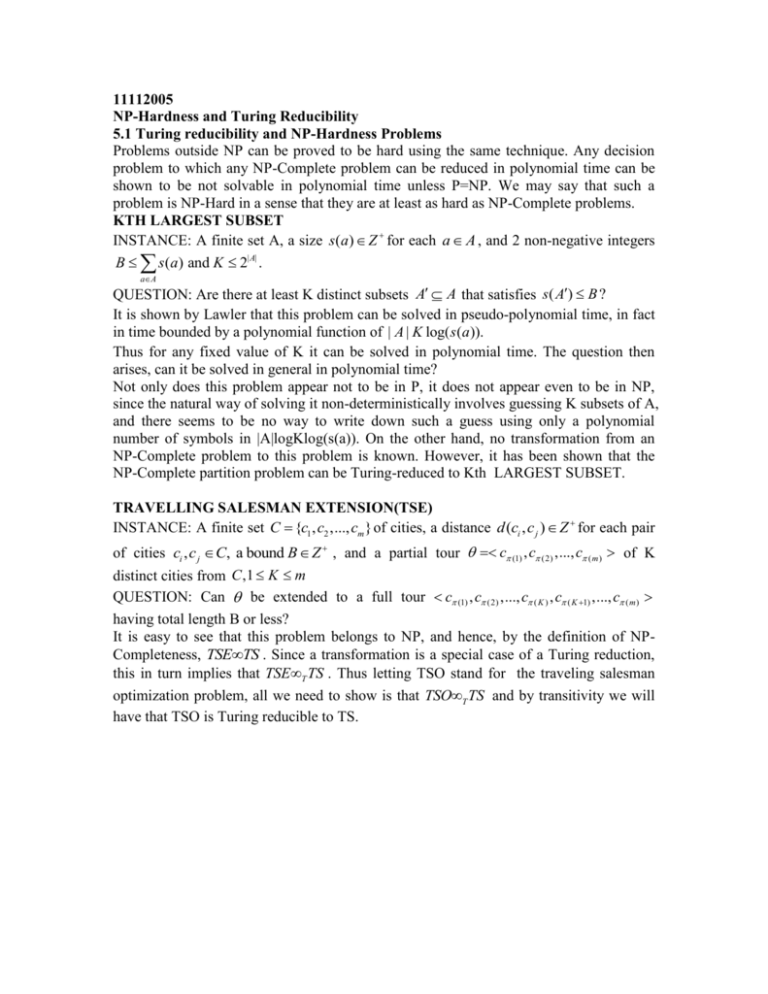
11112005
NP-Hardness and Turing Reducibility
5.1 Turing reducibility and NP-Hardness Problems
Problems outside NP can be proved to be hard using the same technique. Any decision
problem to which any NP-Complete problem can be reduced in polynomial time can be
shown to be not solvable in polynomial time unless P=NP. We may say that such a
problem is NP-Hard in a sense that they are at least as hard as NP-Complete problems.
KTH LARGEST SUBSET
INSTANCE: A finite set A, a size s(a) Z for each a A , and 2 non-negative integers
B s(a) and K 2| A| .
aA
QUESTION: Are there at least K distinct subsets A A that satisfies s ( A) B ?
It is shown by Lawler that this problem can be solved in pseudo-polynomial time, in fact
in time bounded by a polynomial function of | A | K log( s (a)).
Thus for any fixed value of K it can be solved in polynomial time. The question then
arises, can it be solved in general in polynomial time?
Not only does this problem appear not to be in P, it does not appear even to be in NP,
since the natural way of solving it non-deterministically involves guessing K subsets of A,
and there seems to be no way to write down such a guess using only a polynomial
number of symbols in |A|logKlog(s(a)). On the other hand, no transformation from an
NP-Complete problem to this problem is known. However, it has been shown that the
NP-Complete partition problem can be Turing-reduced to Kth LARGEST SUBSET.
TRAVELLING SALESMAN EXTENSION(TSE)
INSTANCE: A finite set C {c1 , c2 ,..., cm } of cities, a distance d (ci , c j ) Z for each pair
of cities ci , c j C, a bound B Z , and a partial tour c (1) , c (2) ,..., c ( m ) of K
distinct cities from C ,1 K m
QUESTION: Can be extended to a full tour c (1) , c (2) ,..., c ( K ) , c ( K 1) ,..., c ( m)
having total length B or less?
It is easy to see that this problem belongs to NP, and hence, by the definition of NPCompleteness, TSETS . Since a transformation is a special case of a Turing reduction,
this in turn implies that TSET TS . Thus letting TSO stand for the traveling salesman
optimization problem, all we need to show is that TSOT TS and by transitivity we will
have that TSO is Turing reducible to TS.
